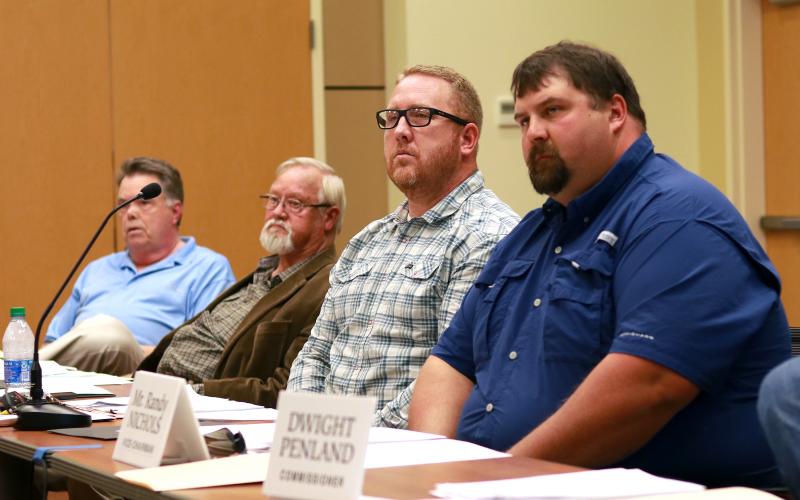
After more than 18 months of work and review, Clay County now has a Residential Park Development Ordinance in place.
The Clay County Board of Commissioners approved the ordinance — also referred to as a "Mobile Home & RV Ordinance" — following a public hearing on Thursday in Hayesville. Clay County Attorney Merinda Woody presented the details to the board during the hearing.
"This is not a zoning document, this is a land-use development document," Woody said. "It's a planning tool for mobile home parks, RV parks, camp sites, campgrounds, tiny home parks and now we're even seeing clusters of teepees."
The ordinance will apply to new businesses renting three or more units — whether that consists of RVs, tents, etc. — in accordance with the Watershed Ordinance of North Carolina.
Anyone seeking to establish a campground, RV site or similar type of business must present their plan to a planning board. The planning board will evaluate documents such as a survey of the property, along with the proposed water and septic sources. The business owner must also include a minimum 10-foot buffer around the outer perimeter of their campground or similar type of business.
Existing campgrounds will not be forced to make adjustments to their current facilities based on the new ordinance, but they will have to submit documents detailing their current setup. Any significant modification they make in the future will be subject to the new ordinance.
"If they change spaces, if they add more properties, if they change streets, if they do any type of major improvement or add another piece of property to it, then they're going to have to comply with the new rules," Woody said.
The ordinance will go into effect on June 15. Current business owners will have six months from the effective date to comply with the new paperwork regulations. In the meantime, the commissioners also established a moratorium on new permits until the ordinance is in place.
A public hearing will be held on June 3, prior to the regular board of commissioners meeting, to review a planning board ordinance. If it passes, the commissioners will establish the planning board and an enforcement officer during the regular meeting.
"This has been something that I've certainly struggled with since this process started," Vice Chairman Randy Nichols said. "It's no secret that I'm a very strong advocate of private property rights. However, I do see that there needs to be a standard set."
The Residential Park Development Ordinance has been in development since October 2019. Woody said she crafted the ordinance with the help of other officials such as the county building inspector, director of environmental health, director of public health, county manager and director of water and sewer.
"You've got property rights on one side and the health and safety and welfare of others on the other side," Woody said. "It's a balancing act. It's been on study for a long time with a lot of players who are bringing in their expertises to say, 'Hey, let's do a uniform plan to try to benefit the health and safety and welfare of our citizens.'"
Woody described a "density" problem that often occurs. She gave the example of one rental site within Clay County which features 22 units packed into a single acre of property and how that can potentially impede medical personnel or rescue workers in emergency situations. The 10-foot buffer rule can help prevent cars from being parked along the roadway bordering a property and allow emergency vehicles proper access.
"I just want to stress the fact that this is not zoning," Commissioner Dwight Penland said. "In the past, we've dealt with this similarly when the solar panels came out and I think this follows right in line with that. We're not telling you what you can do or can't do with your property, we're just putting in place some boundaries to protect not only park owners, but adjoining property owners and their rights."

